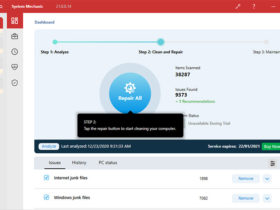If you work in the NHS as a doctor or consultant, or in any other sort of medical capacity, it may well be that you are thinking about going it alone and starting your own private practice. And why not? After all, there are very many advantages to working for yourself, which is what you would be doing, as compared with working for someone else, which is what you are doing in the NHS.
In the NHS, by and large you have to work the hours that the manager requires you to work, and if that happens to include working all night, so be it. Yes, you do the work for the love of the job and for seeing the amazing results that you can often get for patients who have been suffering, but working from 10.00 pm until 8.00 am is not a lot of fun, unless you like that sort of thing. When you are doing that, it doesn’t leave you a lot of time for family and friends.
That said, working for the NHS does have its’ advantages. The pay is good, and it arrives on time every month. You never have to worry about how you are going to pay the next electricity bill, like many people do. However, there are downsides – as there are with everything – and one is that you are at the beck and call of managers who may need you to help cover missing people who are off sick or on holiday, and work some exceedingly long shifts as a result.
All of which means that the prospect of running your own private practice may be something of which you dream. When you do that, you are your own boss – no managers – and you can decide your own hours. You never have to work nights again! That alone may be enough to convince you.
However……..
Yep. You guessed it. There are a lot of advantages to running your own practice, but also disadvantages. Not the least of these is that you need somewhere to practice. That means that you need to rent a building in which to do that. Unless, of course, you are so rich that you can afford to buy one, but we’ll assume that if you are working in the NHS that is not the case.
Not only do you need to rent a building, but you need to buy all the medical equipment that you need in order to attend to patients. In the NHS, that is all provided. In private practice YOU provide it. All of this means that you may need a fairly hefty bank loan in order to get started, and of course that has to be paid back.
Then you have to get patients. That means that somehow you have to find patients. Yes, a lot of people prefer to see a doctor on a private basis rather than through the NHS, but you have to let them know that you are there. Since you are not going to get a flood of patients through the door on day one, it usually means word of mouth, which also means that it is going to take some time to get started. Of course, once you are up and running, you can earn a lot more than in the NHS, but first you have to get up and running.
Another thing that you have to consider is that you are now going to run a business and that means there is a lot of admin that you don’t presently have to do in the NHS. Not the least of your problems is invoicing and getting paid.
This is why you need to invest in a medical consultant system to handle all of the admin. A medical consultant system is absolutely essential in a private practice and can deal with the admin so that you don’t waste your time doing it, leaving you free to see your patients, which is what you should be doing anyway. It can handle your diary schedule, patient notes, procedures and diagnosis, and especially all your accounting. Furthermore, some types of software are available in the cloud and can be accessed from anywhere there is an internet connection.











